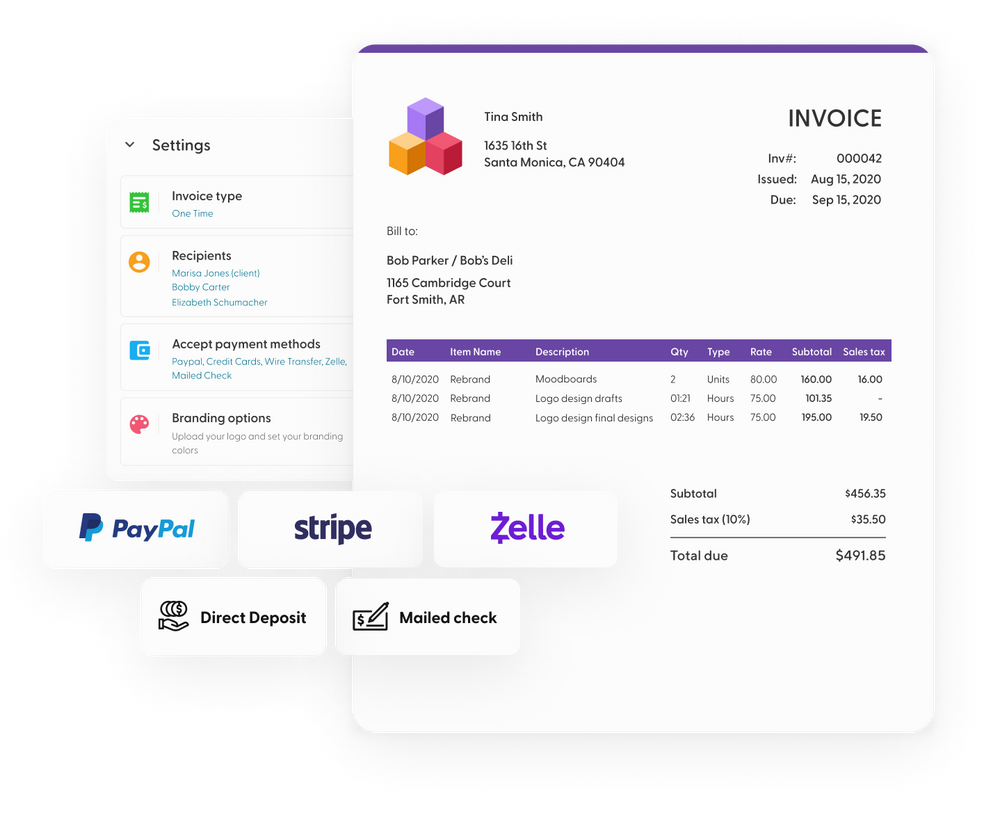If you love writing and enjoy flexibility, then getting paid to write full-time likely sounds like a dream job—working from home, independence, setting your own hours. The list goes on. But freelance writing is no walk in the park (even if the local park is your workplace of choice).
In order to set your own hours, you have to have work lined up. Clients. Projects. A full-time freelance writer is a business owner, and keeping that business afloat is its own full-time job. People who don’t freelance don’t always realize this; people who do, on the other hand, know this all too well.
This means stress. But what are the most stressful parts of freelance writing? And how do you overcome them?
The Stresses of Freelance Writing (And Tips for Beating Them)
I’ve written for a while now, and most of the stresses I’ve battled have been shared with a lot of my colleagues. Here are the most common struggles we’ve faced and how we hop over the hurdles.
Finding Clients
Freelancing is only a viable career if you’re earning money. To do that, you need clients. One of those most difficult parts of the job—especially when getting started—is building up a sustainable clientele that gives you the financial freedom to actually be a freelance writer. Dealing with periods of time without a sufficient amount of work are what drive many freelancers back to a full-time job. Here are some steps to reduce the chances of job insecurity and build your business:
- Build a Solid Portfolio. If you don’t have a strong portfolio of proven work, it’ll be difficult for you to garner clients. You’ll only be hired if you can prove you’ll be of value. If you haven’t yet published any work, start a blog. Write 2-3 pieces of content in the area you want to focus on (finance, fashion, politics, etc.) and use those as writing samples for potential clients. If they like your work, chances are they’ll take you on.
- Leverage Your Network. Don’t be afraid to lean on the people you know. You never know who might have freelance writing jobs available and what a great post on LinkedIn might do. Make sure your network knows that you’re a freelance writer. I got my very first freelance client through an old college friend.
- Check Out Job Boards. Job boards are a great way to find clients, but some are better than others. Check out this list for a few recommendations.
- Referrals. There’s nothing like a happy client. In general, we typically surround ourselves with others who are like us, especially in business. If you have a client satisfied with your work, go ahead and ask them if they know anybody else who might benefit from your services. Referrals are much easier paths to obtaining a new client than writing a cold email.
Building Client Relationships
Not all clients are created equal. Some pay better, some communicate better, and some are simply kinder. Managing these relationships is a complicated but critical part of being a freelancer (and a cause for headaches here and there).
Minimize headaches with:
- Open and Clear Communication. Your writing skills will get you the job, but your communication skills will keep the client.
- Consistency. Don’t be all over the place. Stay consistent with when and how you communicate (email, phone, Slack, etc.) and your quality of work.
- Appreciation. Showing your client you’re grateful for their business goes a long way. If they give you a referral or compliment your work, make sure you send a thank you note.
You can continue to build a relationship with clients even after your project has finished. That connection has never been more important, and Indy has some tips and templates you can use to engage with clients and solidify your partnership.
Managing Uncertainty
Perhaps the largest pro that full-time employees have over freelancers is stability and a steady paycheck. As freelancers, our income can vary by month and the uncertainty is no fun. If the uncertainty hovers around the line of financial insecurity, it can also damage your mental health.
I’ve managed uncertainty by building certainty in other places. These include:
- Freelance Groups. I stay active in different freelance writing Facebook Groups to build my network and connect with others that understand my situation. Having connections can always lead to future opportunities.
- Keeping an Eye Out. Even when my freelance business feels strong and steady, I keep an eye out on job boards and LinkedIn just in case something pops up that might be a good fit.
- Social Media Presence. Wouldn’t it be a dream for clients to come to you? Ensuring that my network knows that I’m a freelance writer means that I could be top-of-mind for a colleague that might one day need someone like me.
Loneliness
Working at home means that we lack some of the avenues for stress relief that full-time employees have, like colleagues, walks around the office, and team activities.
But don’t worry. Although we aren’t surrounded by people, changing our surroundings and building work-from-boundaries can help with combating loneliness and staying focused. Some recommendations include:
- Exercising. A tried-and-true stress reliever.
- Taking Breaks. Scheduling breaks is as important as scheduling meetings. We aren’t machines. Let your brain rest like you let your other muscles rest.
- Separating work space from leisure space. Creating a physical workspace in your house will help you separate “work mode” from “fun mode”. Combining the two isn’t productivity-friendly.
Productivity
Speaking of productivity, that’s our number one goal. But it can be difficult, especially when the writing gigs pile up. These are my two best hacks to keep my productivity levels high:
- Time Tracking. Knowing I waste time stresses me out. But apps like Toggl are game changers for staying on schedule.
- To-Do Lists. There’s nothing more satisfying than crossing items off of an old-fashioned to-do list. Keeping my to-do list in site on my desk keeps me focused and excited about completing my work.
Freelance writing comes with a whole bunch of stressors. But being organized and having a plan for the tough days is key for making the freelance life a whole lot more manageable.



